Review of Call Northside 777
Introduction
The words, "A true story" presage many a Channel 5 movie, and usually engage my remote control reflex. Looking in the real world for inspiration is hardly a recent precedent, and Call Northside 777, made in 1948 begins boldly proclaiming "A true story". There`s no equivocation, no provisos, and it`s obvious that this comes from an era when the Hollywood lawyer was still a member of a poorly paid underclass. Today, such a film would have `loosely based on`, or `inspired by` to guard against litigation. Despite this film`s claim of factual accuracy, it`s still a Hollywood reinterpretation of events, with a couple of liberties taken for dramatic licence here or there. But when you are joining that crowded genre of crusading news reporters battling City Hall and fighting against injustice, there are a few clichés that have to be adhered to. Call Northside 777 made in 1948 is an early entry into the genre, and is based on real events that occurred during and after Prohibition. But with James Stewart in the role of the crusading reporter, this film promises to be more than just another movie of the week.
In 1932, during the height of Prohibition, a cop was murdered in a Chicago speakeasy. Determined to deal with cop killers quickly and with resolution, the police arrested two men, Frank Wiecek and Tomak Zeleska and charged them with the crimes. They were convicted with the testimony of the owner of the speakeasy, Wanda Skutnik and were sentenced to 99 years in prison. 11 years later, an ad in the paper grabs the attention of the editor of the Chicago Times, promising $5000 leading to the arrest of the murderers. Reporter P J McNeal meets the person who placed the ad, and is surprised to learn that it isn`t mob money trying to clear an assassin, rather the unwavering faith and hard earned wages of a loving mother. It makes for great copy, but the editor Brian Kelly wants a follow up. The sceptical reporter goes to see Frank Wiecek in prison, but finds a soft-spoken man who protests his innocence, but whose inability to provide corroborating evidence does him little good. While the story sparks the interest of the paper`s readership, McNeal would like nothing better than to kill the story. Kelly offers him the chance to find a negative angle to the story, and McNeal thinks that the divorced wife would be ideal in that respect. However the story refuses to die, and after Wiecek passes a lie detector test, McNeal realises that he cannot rest until he proves Wiecek`s innocence. The Chicago Police department and the Governor`s office have other ideas though.
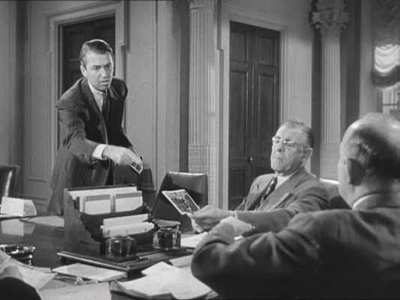
Video
For a film that is almost 60 years old, Call Northside 777 has aged pretty gracefully. There is a fair bit of stock footage that is quite the worse for wear, but the film itself only has a touch of print damage. The picture is mostly clear and sharp with good contrast throughout. There was one instance of cine wobble that I noticed, but otherwise the image quality is more than acceptable. The cinematography is atmospheric, with plenty of noir conventions with the use of shadow and light. There are also a lot of locations used, and we get to see the seedier side of 1940`s Chicago. The disc is coded Region free.
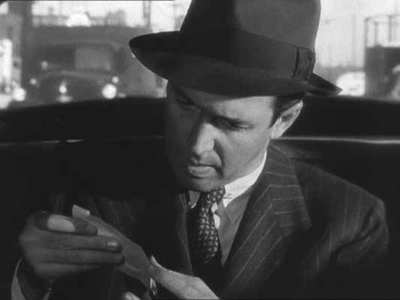
Audio
The sound hasn`t fared quite as well as the picture, with age quite apparent in the hiss, crackle and pops of the DD 2.0 mono track. There is also a subliminal buzz that becomes apparent some 60 minutes into the film and remains on and off till the end. The important thing is that the dialogue is clear throughout. Unfortunately this disc lacks subtitles.
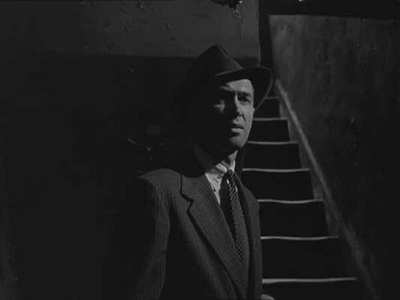
Features
The sole extra on this disc is the commentary from authors and historians James Ursini and Alain Silver. It`s a rounded commentary from a historical perspective, as you would expect. While they obviously discuss the film, they also cover the events that inspired the film. It`s interesting if occasionally obvious.
The region 1 disc also gets a Movietone reel of the film`s premiere, as well as trailers, but we aren`t too short-changed in that respect.
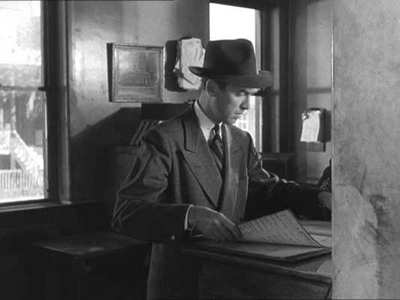
Conclusion
Call Northside 777 doesn`t add anything too revolutionary to the `Intrepid reporter battling injustice` genre, although at the time it probably would have had a significant impact. What makes it worthwhile is a scintillating performance from James Stewart as the cynical reporter McNeal. This film came at that point in his career when he was beginning to move away from the boyish fresh-faced characters that had so typified his career in films like It`s A Wonderful Life. Here his reporter is not only cynical, but quite mercenary as well. He`s smooth but not all that likable as a professional, quick to see the bottom line, and more than capable of manipulating others to get the story he wants. While his initial scepticism wavers, and he comes to believe in Wiecek`s innocence, the reasons that he pursues the story seem less altruistic and more a matter of personal pride. It`s an excellent performance and an early Stewart character with a hint of darkness at heart.
He`s well matched by Lee J. Cobb as his somewhat stereotypical gruff editor Kelly. The two characters play off each other well, and have some choice exchanges. Indeed another strength of the film is the naturalistic dialogue, both clever and witty that is a source of entertainment. The documentary style of the film is evident though, with a couple of stilted performances from professionals as opposed to actors. An interesting cameo is that of Leonarde Keeler, inventor of the polygraph machine, who demonstrates his own creation here.
Age is certainly apparent in the film, not least for its slow pace. It takes a leisurely 106 minutes to tell its tale, and once or twice does begin to drag. Every once in a while, I watch an old film and blink twice at the ubiquity of cigarette smoking as a prop, and this film was another that had me concerned for the health of all concerned. A rather more pointed observation was that for a film set in 1944, it was remarkably insular and focused on its subject. All the spinning headlines and whirring presses revolved around the Wiecek case, the city was gripped by the investigation. You`d think there wasn`t a war on.
It matters very little, because the central performance from James Stewart carries this film, and elevates it above many of the similar `movie of the week` efforts that have been made since. It`s a mesmerising portrayal that makes this film so compelling and easy to recommend.
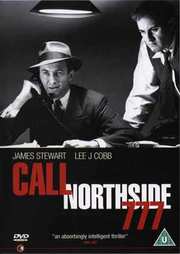
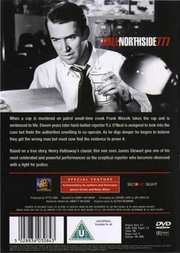




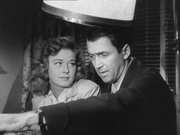
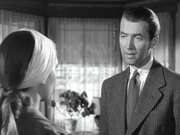
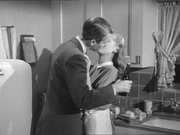
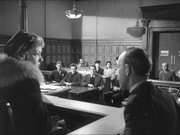
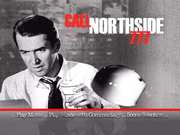
































Your Opinions and Comments
Be the first to post a comment!